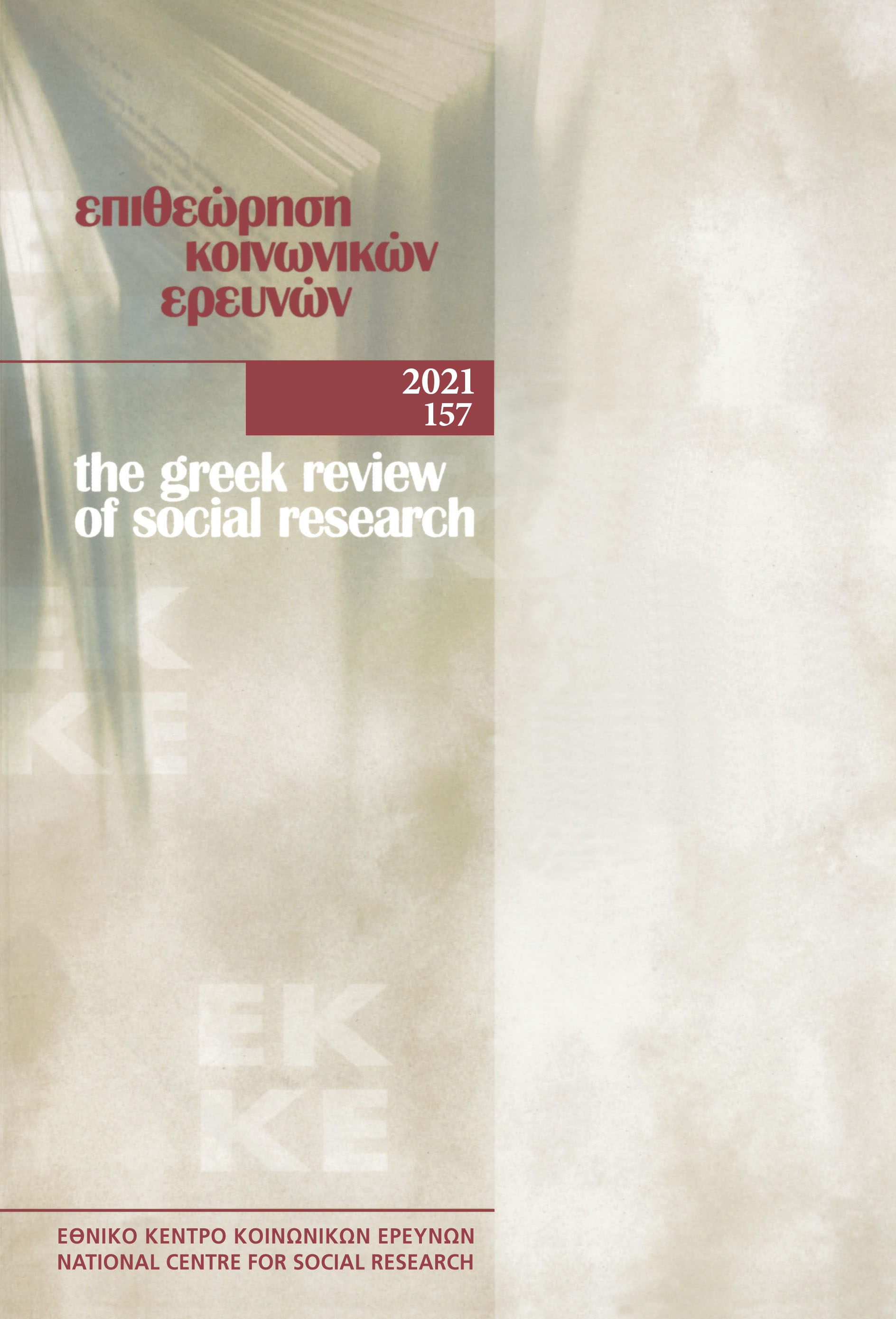Περιφερειακή εξειδίκευση, βιώσιμη ανάπτυξη και κοινωνική οικονομία: Η περίπτωση της περιφέρειας Δυτικής Μακεδονίας

Περίληψη
Με το παρόν άρθρο επιχειρείται η διερεύνηση του ρόλου της περιφερειακής εξειδίκευσης και της συμβολής του τομέα της κοινωνικής οικονομίας στην οικονομικά βιώσιμη προοπτική της περιφέρειας της Δυτικής Μακεδονίας. Συγκεκριμένα, εξετάζεται η περιφερειακή στρατηγική εξειδίκευσης της Δυτικής Μακεδονίας στο πλαίσιο της αντίστοιχης Ευρωπαϊκής στρατηγικής με σκοπό την εξαγωγή ερευνητικών αποτελεσμάτων για το πλαίσιο και την υλοποίησή της. Ακόμη, παρουσιάζονται ερευνητικά αποτελέσματα για το οικονομικό περιβάλλον στον τομέα της επιχειρηματικότητας και της καινοτομίας, καθώς επίσης και για τη βιωσιμότητα και τις δυνατότητες του τομέα της κοινωνικής οικονομίας στην περιφερειακή ανάπτυξη.
Λεπτομέρειες άρθρου
- Πώς να δημιουργήσετε Αναφορές
-
Staboulis, M., & Papagiannis, G. (2021). Περιφερειακή εξειδίκευση, βιώσιμη ανάπτυξη και κοινωνική οικονομία: Η περίπτωση της περιφέρειας Δυτικής Μακεδονίας. Επιθεώρηση Κοινωνικών Ερευνών, 157, 31–62. https://doi.org/10.12681/grsr.27602
- Τεύχος
- 2021: 157
- Ενότητα
- Άρθρα

Αυτή η εργασία είναι αδειοδοτημένη υπό το CC Αναφορά Δημιουργού – Μη Εμπορική Χρήση 4.0.
Οι συγγραφείς των άρθρων που δημοσιεύονται στην Επιθεώρηση Κοινωνικών Ερευνών διατηρούν τα δικαιώματα πνευματικής ιδιοκτησίας επί των άρθρων τους, δίνοντας στο περιοδικό το δικαίωμα της πρώτης δημοσίευσης. Άρθρα που δημοσιεύονται στην Επιθεώρηση Κοινωνικών Ερευνών διατίθενται με άδεια Creative Commons 4.0 και σύμφωνα με την άδεια μπορούν να χρησιμοποιούνται ελεύθερα, με αναφορά στο/στη συγγραφέα και στην πρώτη δημοσίευση για μη κερδοσκοπικούς σκοπούς.
Το Εθνικό Κέντρο Κοινωνικών Ερευνών διατηρεί το δικαίωμα να δημοσιεύει, να αναπαραγάγει, να παρουσιάζει στο κοινό, να διανέμει και χρησιμοποιεί άρθρα που δημοσιεύονται στην Επιθεώρηση Κοινωνικών Ερευνών σε οποιοδήποτε μέσο και μορφή είτε μεμονωμένα είτε ως μέρη συλλογικών έργων, για όλο τον χρόνο διάρκειας προστασίας της πνευματικής ιδιοκτησίας και για όλες τις χώρες του κόσμου. Αυτό περιλαμβάνει ενδεικτικά και όχι αποκλειστικά το δικαίωμα δημοσίευσης των άρθρων σε τεύχη της Επιθεώρησης Κοινωνικών Ερευνών, αναπαραγωγής και διανομής μεμονωμένων αντιγράφων των άρθρων, αναπαραγωγής ολόκληρων των άρθρων σε άλλη έκδοση του Εθνικού Κέντρου Κοινωνικών Ερευνών, καθώς και αναπαραγωγής και διανομής των άρθρων ή περίληψης αυτών με χρήση πληροφορικού συστήματος αποθετηρίου.


